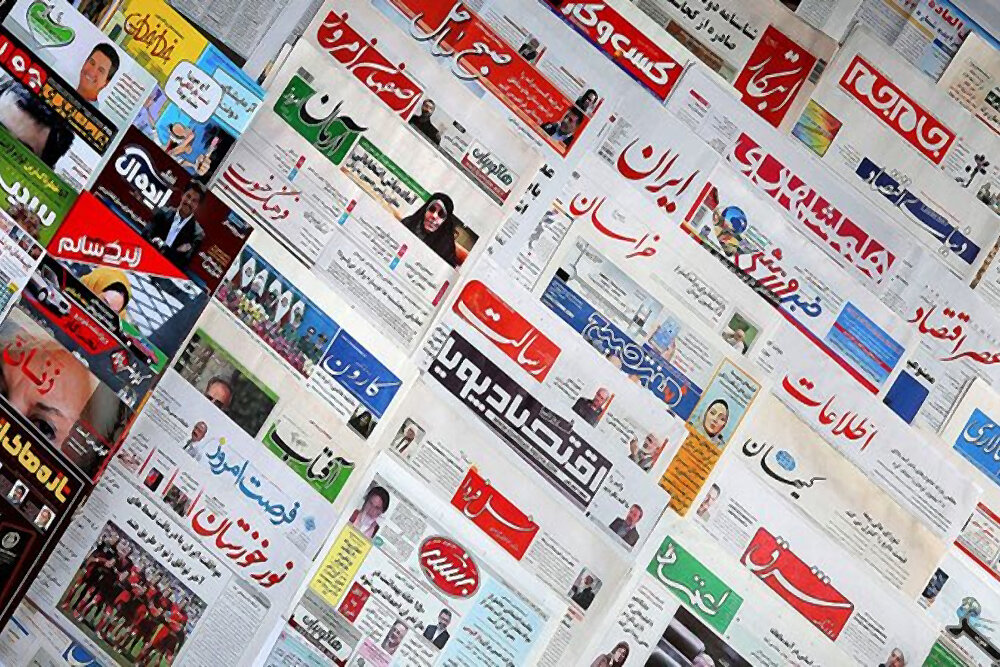Iran naval fleet in U.S. backyard

Two days ago two Iranian warships, Dena and Makran, docked in the port of Rio de Janeiro, Javan newspaper wrote.
About 200 years ago, President James Monroe said Latin America was the U.S. backyard and that the country would not allow other powers to be there.
The Monroe Doctrine has been upheld in the continent over the past two centuries, and the United States has repeatedly gone to war with some countries to preserve it.
Iranian warships in the region not only show the decline of American power but also shows that Iran has the upper hand in the world power system.
Of course, Iran's power is not only limited to its presence in the seas. Iran's pressure on the gradual withdrawal of Americans from West Asia and its resistance against the expansion of NATO to the East were other aspects of Tehran's power.
Etela'at: Ukraine war, world powers, Iran
Now, like Germany in 1914, Europe considers Russia as an aggressor that cannot remain silent in the face of its expansionism, the Etela'at newspaper writes.
And of course, like Germany, it should not be humiliated with agreements, but it should be punished and then relations with it become normal. But from the point of view of the United States, Russia, and China should be weakened as two powerful rivals.
But the important thing about the Ukrainian war is Iran's position. One of the most serious political-economic consequences of the war for Iran is that the JCPOA has been removed from the agenda.
In the meantime, Russia is not interested in solving Iran's challenges with the international community, because solving these problems can provide the grounds for Iran's return to the energy market.
The end of the war in Ukraine and the face-saving withdrawal of Russia from the Ukrainian swamp is in favor of Iran. Iran can form a coalition together with China and Belarus to end the war in Ukraine in order not to allow the JCPOA to be left out of the agenda of the great powers.
Etemad: Ground ready for start of new round of negotiations
Spokesman of the Atomic Energy Organization of Iran (AEOI) Behrouz Kamalvandi has said we had “constructive and promising” discussions with the International Atomic Energy Agency delegation headed by Massimo Aparo, chief of the Department of Safeguards.
So, we have to wait for the positive results of Mr. Grossi's talks with Iranian officials in Tehran next week.
Etemad writes the announcement of Grossi's visit on the eve of the IAEA Board of Governors meeting on March 15 has created a positive atmosphere to prevent a new resolution against Iran.
Recently, Nicholas Burns, the head of the CIA, also stated: "We have no evidence to show that Iran has decided to militarize its nuclear program since 2003."
Therefore, even, with a new agreement with the IAEA, both sides can reach a road map to answer the three suspected sites and close the file forever.
IRAN: U.S. misleading tact regarding leak of indirect messages for talks with Iran
Recently, Iranian officials announced that the U.S. has sent a message to Iran, which was denied by the State Department spokesman, the Iran newspaper reported.
While the spokesman denied sending the message to Tehran indirectly, Qatar's foreign minister had announced it.
Undoubtedly, after the end of the unrest in Iran, reaching an agreement with Iran is critical for the U.S. as the Biden government must have an answer for its failures against Iran and his promise to revive the nuclear deal.
But the U.S. president, who sees himself in a weaker position against Iran than in the past, does not want to pay the cost for the many signals he sends to Tehran to resume negotiations.
Denial of sending the message indirectly through high-ranking regional officials becomes meaningful in such an atmosphere because it has become clear that Biden has a difficult path ahead to reach an agreement. On the one hand, he is facing a challenge by the Republicans, and on the other, he is facing pressure from groups that believe efforts to resume negotiations with Iran are made at a time when the U.S. is in a weak position.
Arman-e- Melli: It is better to make changes to nuclear team
It is said that Iranians always prolong negotiations to reach their goals, Arman-e- Melli writes.
Of course, we are looking for more profit from the negotiations, but we should not wait so long in making a decision that opportunities are lost.
The Americans were waiting to see how Iran manages internal unrest. Iran was managed despite the bad economic situation.
Both Europe and Iran have come to the conclusion that Iran's nuclear issues should be resolved.
Considering the enthusiasm of both sides and also the comments made by the Iraqis and Omanis regarding mediation, we probably will witness a favorable atmosphere in the negotiations in the future.
We have to accept that the former negotiating team played a big role in the Vienna Talks, so it is better for the current negotiating team to utilize people like Araghchi and Zarif as advisors, and if necessary make a change in the team to achieve the result in the negotiations to revive the JCPOA.
